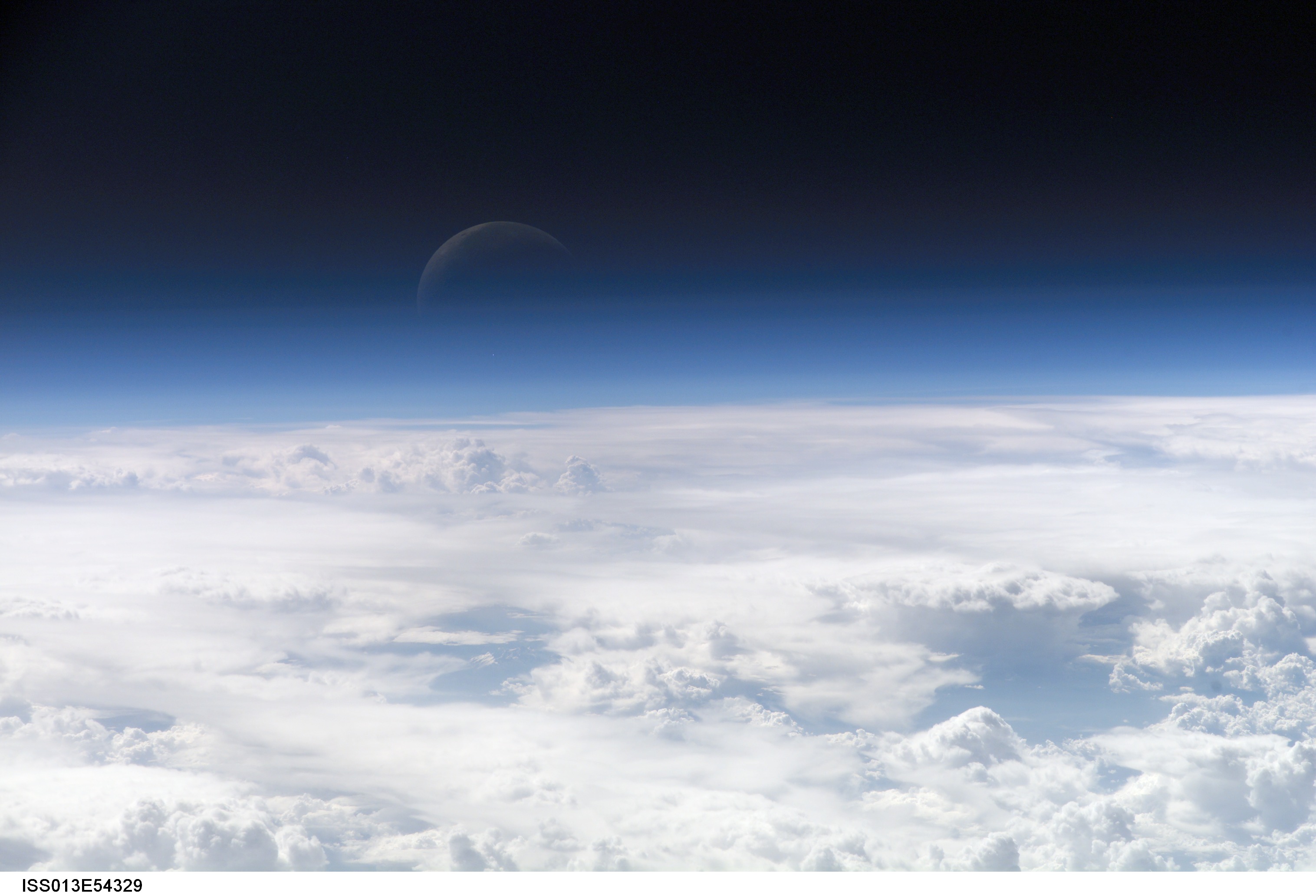skip to main |
skip to sidebar
Drifting around the Earth in 2006 July, astronauts from the International Space Station (ISS) captured a crescent Moon floating far beyond the horizon. The captured above image is interesting because part of the Moon appears blue, and because part of the moon appears missing. Both effects are created by the Earth's atmosphere. Air molecules more efficiently scatter increasingly blue light, making the clear day sky blue for ground observers, and the horizon blue for astronauts. Besides reflecting sunlight, these atmospheric molecules also deflect moonlight, making the lower part of the moon appear to fade away. As one looks higher in the photograph, the increasingly thin atmosphere appears to fade to black.





No comments:
Post a Comment